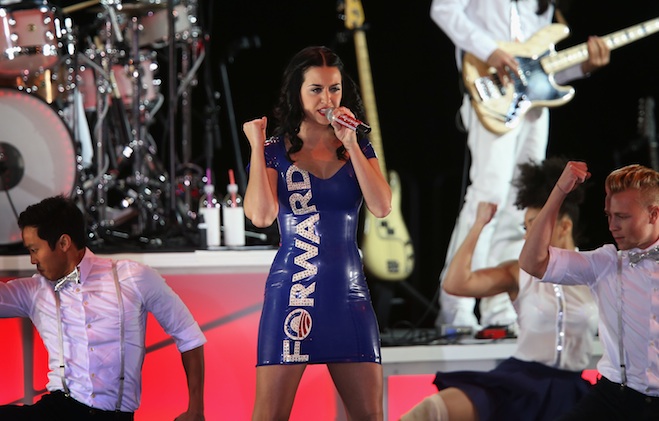This morning, National Review Online’s Jim Geraghty penned a response to this Misfit Politics article by John Brodigan on culture in his daily Morning Jolt. We’ve discussed this topic ad nauseum since last year, and it’s good that we’re still having the conversation. It can’t stop.
Videos by Rare
Geraghty asks the question “Can conservative quotes from Bono and Ashton Kutcher change the culture?”
The answer, in short, is absolutely.
Let’s jump back and look at this in a broad way before diving in. The truth is that most people don’t hate much of what conservative/libertarian policy stands for. The visceral hatred is actually directed at a caricature of the right — the gay-hating, woman-oppressing monster that is outdated and mean. The right-wing cartoon that is the recipient of this disdain is an easy target, and it doesn’t take much energy or thought to attack people on that front… so it works. This sentiment, simplistic and baseless as it is, translates easily into today’s soundbite culture. The messages are easily translated to Facebook memes and Pinterest images and tweets that permeate the culture in a way that the Right’s 56 page white papers on tax policy never will. It’s an unfortunate reality, but pretending that the old tactics are going to win people over is just delusional at this point.
From the Morning Jolt:
I’m still chewing this over, and trying to decide whether this represents a necessary tactic in an era of celebrity-obsessed pop culture, or whether it’s just the latest version of the conservative tendency to instantly adopt and celebrate any celebrity who happens to echo some of our arguments.
After all, when we say it’s shallow and silly and superficial for Democrats to emphasize their Hollywood star supporters at their political conventions, and to hold campaign events with Bruce Springsteen and Jay-Z and such . . . we’re not wrong.
Of course we’re not wrong. Is it shallow to take policy advice from celebrities? ABSOLUTELY. But, for better or worse, this is the language that our country speaks. The more time we spend acting above it, the further isolated we become and the harder it is to actually reach people. Shouldn’t we, at the very least, make sure we highlight the right messages and not cede that ground to the Eva Longorias of the world? What good does it do us to sit around and bask in our rightness if we die and lose the country in the process?
Barack Obama took the marriage of pop culture and politics to a new level. His entire campaign was a pop culture experiment — and it worked. It’s still working. Brodigan makes the point that many well-meaning right of center groups have hung their hopes on defunding Obamacare or other such issues of the day, but that it seems like more of a ploy to raise money and build lists. He isn’t wrong. The truth is, most Americans aren’t interested in political action and they have absolutely no idea at all how these policies affect them, and they won’t care until they do. They’re not going to call their Senators and Congressmen, no matter how many Facebook ads a grassroots group buys to tell them to.
They are, however, looking at Facebook memes. They’re reading their friend’s status about how their policy got canceled. They’re looking at Katy Perry’s latex FORWARD dress. It affects how they vote.
Brodigan expands on this idea:
You can find conservative messages everywhere, even if the messenger is anything but. Find those messages. Package them in a way that conservatives usually don’t, for an audience that doesn’t usually listen to them in a first place. Those two quotes from Ashton Kutcher and Bono have done more to advance the cause of liberty, free markets, and entrepreneurship then anything Ted Cruz or Mark Levin has said all year (and I’m a big fan of Cruz).
While there is much to be said for Geraghty’s assertion that there should be separation between politics and pop culture, it’s hard to maintain that there can be a separation between pop culture and the life of daily Americans. Pop culture reflects the mood of our nation through music, movies, television and yes, Facebook memes. As long as pop culture affects people, pop culture will matter in politics. It’s sort of a twisted chain of influence: Celebrities influence the masses, who influence politics, which affects everyone, the outcome of which which gets mirrored and mocked on screen by celebrities.
Be separate from pop culture. If you want to hate Bruce Springsteen and Jay-Z for the rest of your life, that is absolutely okay. That is, after all, what freedom is about. It is completely suicidal, however, to dismiss the power that figures like this hold. You cannot change the world without changing the mediums that influence it.
The messages of independence and opportunity that Bono and Ashton Kutcher espoused are the core of conservative principle. I’d argue that no demographic values freedom and being left alone more than my generation’s entitled young people. The implied authority of celebrity makes economic liberty sexy in a way that Washington and political circles will never be able to.
The bottom line is that freedom is sexy, and we have a duty to the next generation to make sure they understand how awesome it really is. Embrace the culture. Love it. Use it. Then win.



2 Comments
Leave a Reply2 Pings & Trackbacks
Pingback:Open Memo to Moderate Republicans | Misfit Politics
Pingback:Open Memo to Moderate Republicans | Bacon, Boobs, and Beer – The Official Website for Everything Brodigan